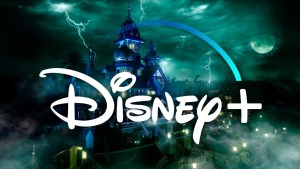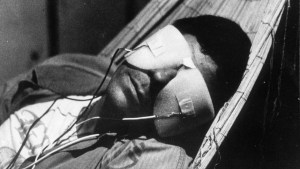In the almost 40 years since its creation, less than 20 films have earned an “F” CinemaScore, with a variety of reasons explaining the audience’s disappointment. Most recently, Darren Aronofsky, who gave audiences films like Black Swan and The Wrestler, earned the dreaded classification with mother!, a divisive film full of Biblical allegory. Another film that earned the rating was director Greg McLean‘s Wolf Creek in 2005, a film that pit backpackers against a serial killer in the Australian outback.
Videos by ComicBook.com
Earning the dreaded score might be disappointing to some filmmakers, but McLean, who recently made the Daniel Radcliffe-starring survival thriller Jungle, isn’t dismayed with the reaction.
“It’s actually really amusing,” McLean told Comicbook.com about his film’s score becoming a topic once again in the film world. “It’s hilarious to me that it’s like, ‘Look at the other movies that have got F CinemaScores!’ It’s really, really funny. “
A film’s worth can be measured in a variety of ways, with many audiences turning to sites like MetaCritic or Rotten Tomatoes, which averages out all critical reviews of a film to determine an overall rating. CinemaScore, however, conducts surveys with patrons leaving a theater on a film’s opening weekend to determine how pleased they were with a film, ultimately receiving a letter grade ranging from A through F.
“It’s really to do with the expectation of the audience…”
Despite Wolf Creek‘s score, the movie did gain a cult following, earning itself not just a sequel but also a TV series.
“The reason it’s funny about the CinemaScore thing is because, at the moment I’m in post-production of the second season of the Wolf Creek TV series,” he noted. “When I was in the middle of editing that, cutting my episode, mother! came out and then we saw all this funny press about, ‘Oh, here are all the other films that got F CinemaScores.’ The funny thing about the F CinemaScores is it’s really to do with the expectation of the audience being set up one way and then totally reversed.”
Marketing for mother!, for example, painted the film as a home invasion thriller starring Jennifer Lawrence and Javier Bardem, with the film being far more abstract and challenging to the viewer.

“The film is so upsetting, and so brutal, and so nihilistic…”
One factor that played into Wolf Creek‘s score was clearly its release strategy.
“Obviously [Wolf Creek has] garnered a reputation over time as being seen as a pretty good horror film, but what happened was when Wolf Creek first came out, it was released on Christmas day in 2005 on 1,500 screens,” McLean pointed out. “The Weinsteins thought it’d be clever to program it, because I think they’d had success with that concept to screen on Christmas day a couple years beforehand.”
“They thought, ‘Let’s put out this brutal, shocking horror film on Christmas day and see what happens,’” McLean shared. “People came to this film, and the film is so upsetting, and so brutal, and so nihilistic that the expectation was audiences think they would go and see a fun horror film like Scream, and guess what? It wasn’t that at all. It was extremely disturbing, extremely nasty. A different kind of horror film than people and mainstream American cinema usually see. People haven’t seen a film like that in cinema since Texas Chain Saw Massacre in terms of how it pulls no punches whatsoever.”

“They weren’t going to have their mind expanded…”
The director could sympathize with the reception of mother!, considering his film suffered such a similar fate.
“A lot of the score, I think, was to do with the expectation and obviously mother! was sold as a Screen Gems thriller,” McLean admitted. “It’s like, ‘A woman moves into a house with her husband and people arrive,’ and you think you’re going in to see a kind of Blumhouse [Studios] horror film or Screen Gems horror film, and ends up being this completely out there, allegorical, artistic, experimental piece of cinema.”
“So Joe Schmoe going along to munch some popcorn and see a thriller, he’s gonna be disappointed because they weren’t going to have their mind expanded, they were going to see a familiar kind of a thriller story,” the director divulged. “I think that the F scores for a lot of those films have to do with the expectation that hasn’t been met because of how it was marketed, or when it was released.”
“What the hell is this sh*t?”
The other recipients of the F CinemaScore include forgettable horror movies like The Devil Inside and Alone in the Dark, as well as the parody film Disaster Movie. Despite these films earning low CinemaScores and poor critical reviews, Academy Award-winning filmmakers like William Friedkin and Steven Soderbergh have also earned an F score for their films Bug and Solaris, respectively.

Soderbergh, director of the Ocean’s Eleven trilogy, Erin Brockovich and Traffic, adapted the nearly three-hour Russian Solaris from 1972 into a 100-minute film starring George Clooney, which audiences failed to connect with.
“If you think about the movies that are on there, it’s to do with expectations, because mainstream American audiences never would have heard of [Andrei Tarkovsky’s] Solaris, right? One of the great intellectual sci-fi films of all time,” McLean said. “So American audiences would say, ‘Oh, George Clooney in a space movie. Awesome!’ I think James Cameron was even a producer on the movie, so they’re like, ‘James Cameron, awesome! It’s gonna be shooting aliens,’ and it’s this meditation on love, and death, and the human soul, and all kinds of stuff, and they’re like, ‘What the hell is this sh*t?’”
McLean’s latest, Jungle, hits select theaters and VOD on October 20.








